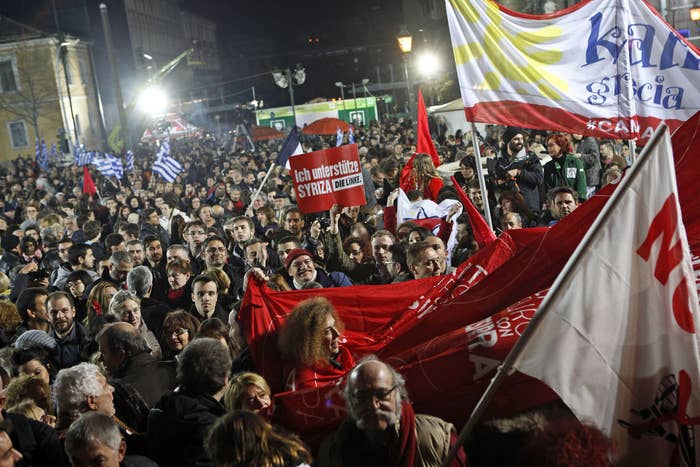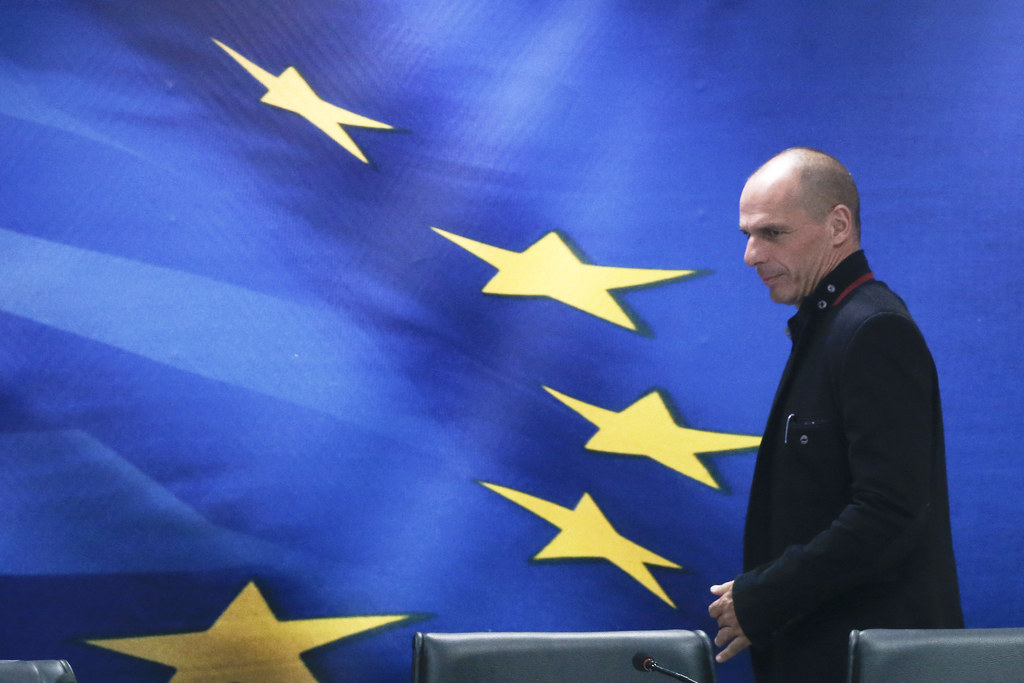What is Syriza?

Syriza is a young left-wing party that won Greece's snap election on Sunday with a vow to revoke the European Union-led austerity program imposed on the country. Led by Alexis Tsipras, a 40-year-old former youth activist, Syriza was formed in 2004 as a coalition of groups and parties that included Maoists, Marxists, and environmentalists.
Syriza's popularity rocketed during an economic crisis that led the country to agree to unpopular spending cuts in return for a 240-billion-euro bailout from the European Commission, the European Central Bank, and the International Monetary Fund. Syriza became a single party in 2013 and fell just two seats shy of a majority in this month's parliamentary polls. It has formed a coalition with another anti-austerity party.
What do party members want to do now they’re in office?

Syriza wants to get much of Greece's 320 billion euros worth of debts written off or renegotiated. Greek banks took their biggest ever stock market hit on Wednesday amid concerns about these plans, even though Tsipras told his first cabinet meeting he was not looking for a "mutually destructive clash" with creditors, the Financial Times reported.
Tsipras has also vowed to reverse austerity measures by raising the minimum wage, cutting electricity prices for poor families, and undoing public sector pay cuts, Reuters reported. Greece's debt is worth 175% of its GDP, a level second only to Japan, and around a quarter of people are unemployed.
Who are some interesting members of the party?

Tsipras, who is now Greece's youngest prime minister since World War II, used to stage high-school sit-ins, The Guardian reported in a profile. He is an ardent admirer of the Argentinian Marxist revolutionary Ernesto "Che" Guevara, and named the youngest of his two sons after him, the newspaper reported.
Another important figure is finance minister Yanis Varoufakis. He has a large online following both on Twitter and his blog, where he shares economic views such as: "As the Eurozone's inevitable crisis was addressed by a cynical transfer of banking losses onto the shoulders of the weakest taxpayers, politicians and commentators who tied their colours onto the so-called bailouts' mast demonstrated precisely no interest in rational debate."
What is Syriza's chances of success?

Syriza faces stiff opposition from the most powerful players in Europe. EU Commission President Jean-Claude Juncker said this week that a so-called debt haircut is not currently "on the radar." Leading politicians in Germany, Europe's biggest economy, have come out against the proposals, The Economist reported on Tuesday. There are concerns that if Greece is granted a reprieve on its debts, other struggling eurozone economies such as Spain and Italy could follow suit.
So, what might happen next?

Greece is unlikely to get to cancel all of its debts – but it is also unlikely to be able to pay them all off. The two sides will therefore probably have to reach a deal that shaves some payments and postpones others, the FT explains. The first key decision is whether to extend Greece's financial bailout beyond a Feb. 28 expiration date. The next decisions concern approximately 4.3 billion euros of debt repayments due in March and more than 6 billion euros due in July and August, the FT reported.
